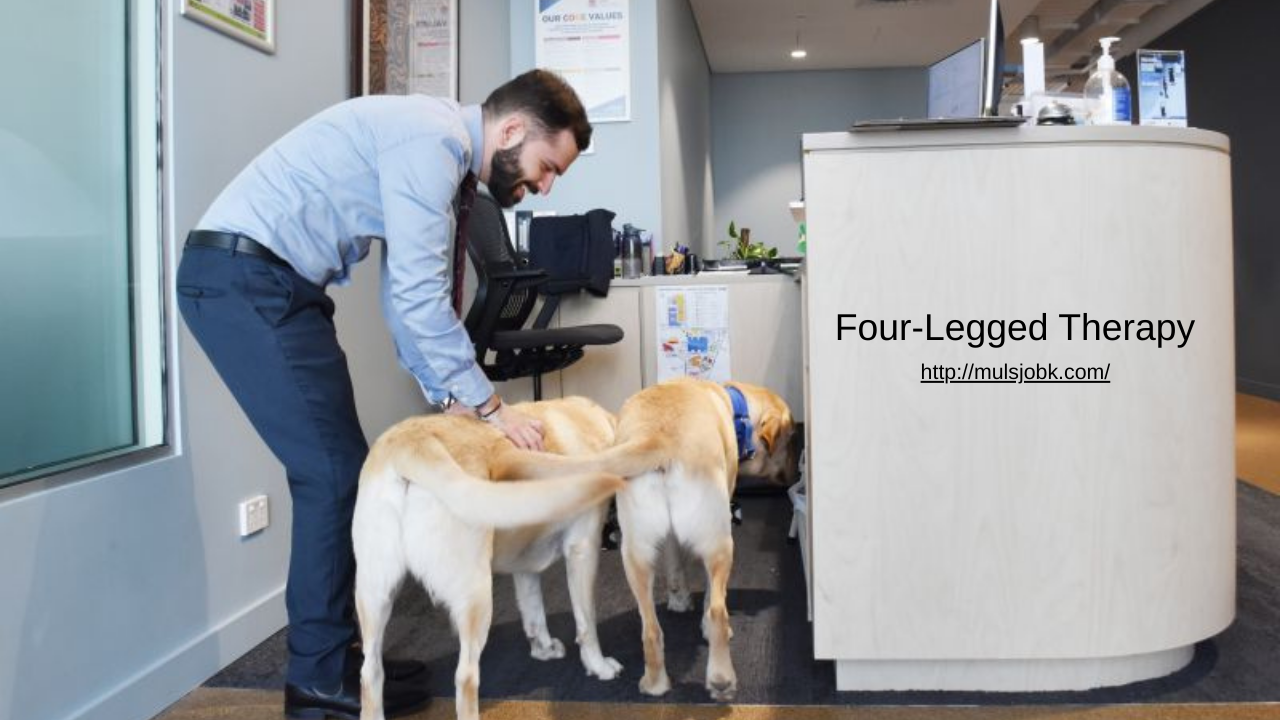 Recovery is about much more than putting an end to substance use. It is about rebuilding a life filled with structure, purpose, and healthy connections. The path from addiction to lasting wellness can feel overwhelming, and it often requires a combination of professional care, supportive relationships, and holistic healing. One surprising yet powerful source of support in this journey comes from dogs. Their unconditional love, loyalty, and steady presence provide a unique form of therapy that helps individuals bridge the gap between active addiction and long-term recovery.
Recovery is about much more than putting an end to substance use. It is about rebuilding a life filled with structure, purpose, and healthy connections. The path from addiction to lasting wellness can feel overwhelming, and it often requires a combination of professional care, supportive relationships, and holistic healing. One surprising yet powerful source of support in this journey comes from dogs. Their unconditional love, loyalty, and steady presence provide a unique form of therapy that helps individuals bridge the gap between active addiction and long-term recovery.
The Emotional Comfort of Canine Companionship
Addiction can leave individuals feeling isolated, misunderstood, or disconnected from others. Dogs, however, offer consistent companionship that is free of judgment. Their ability to sense emotions and respond with affection helps reduce feelings of loneliness, anxiety, and depression. Studies show that spending time with dogs lowers stress hormones and increases oxytocin, the hormone associated with trust and bonding. For someone in recovery, this simple interaction can make a significant difference in daily emotional stability.
Rebuilding Trust and Self-Worth
Many individuals in recovery carry guilt or shame from their past struggles. Dogs do not dwell on mistakes or hold grudges. Their unconditional acceptance allows people to rebuild trust, first with their pet and eventually with themselves and others. Caring for a dog fosters self-worth by proving that the individual is capable of responsibility, compassion, and consistency.
Structure and Routine as Recovery Tools
Sobriety often requires creating new patterns that support stability and wellness. Dogs naturally encourage structure. Feeding schedules, walks, grooming, and playtime introduce predictable routines that bring order to the day. These daily responsibilities not only promote accountability but also reduce the risk of relapse by filling time with meaningful activity.
Responsibility as Motivation
Recovery can sometimes feel like an uphill battle, especially when motivation runs low. Knowing that a dog relies on its caregiver provides a strong incentive to stay consistent. The sense of purpose that comes from caring for another living being reinforces healthy decision-making and helps individuals stay engaged in their recovery journey.
Encouraging Social Connection
Isolation is a common relapse trigger, and rebuilding social confidence is an important part of recovery. Walking a dog or visiting a park naturally creates opportunities for positive social interactions. These small but meaningful exchanges help individuals reconnect with their communities and develop healthier social habits.
Integrating Dogs Into Holistic Recovery
Holistic and faith-based approaches to treatment focus on healing the whole person: body, mind, and spirit. Dogs complement this philosophy by providing emotional healing, promoting physical activity, and encouraging mindfulness through daily care. When integrated into individualized recovery plans alongside counseling, group therapy, and spiritual practices, canine companionship can be a valuable therapeutic tool that supports overall wellness.
Taking the Next Step Toward Healing
Dogs have a remarkable way of filling emotional gaps, encouraging healthy routines, and reminding individuals that they are worthy of love and connection. For those transitioning from addiction into recovery, canine companionship can be more than comfort. It can be a lifeline that bridges the space between struggle and stability.
If you or someone you love is seeking support for addiction recovery or mental health challenges, help is available. With professional care, holistic healing, and the simple yet powerful therapy of connection, lasting recovery is possible. Reach out today to take the next step toward a brighter, healthier future.